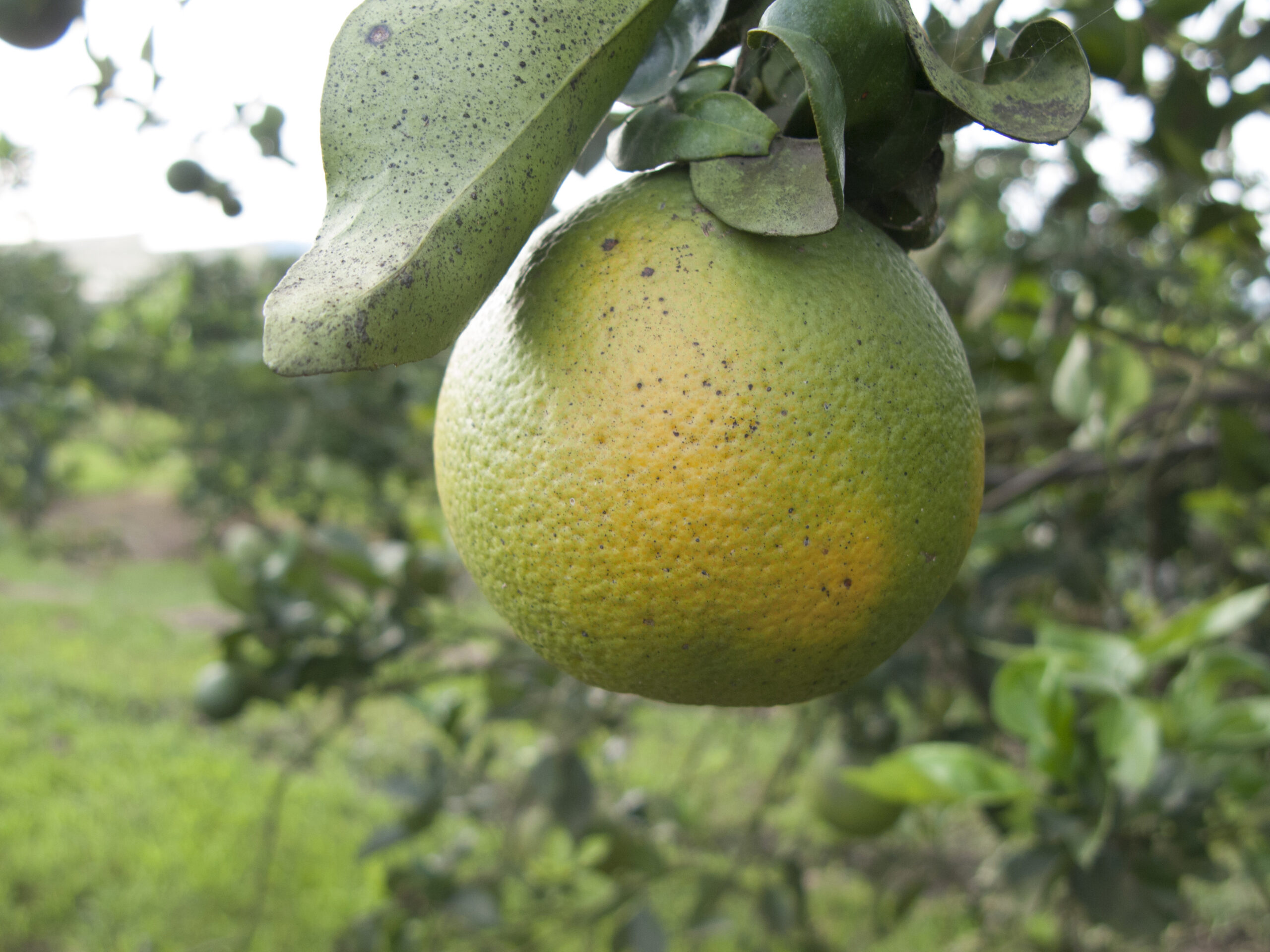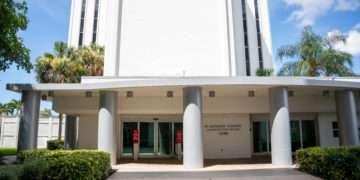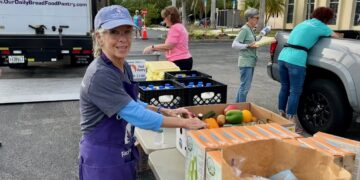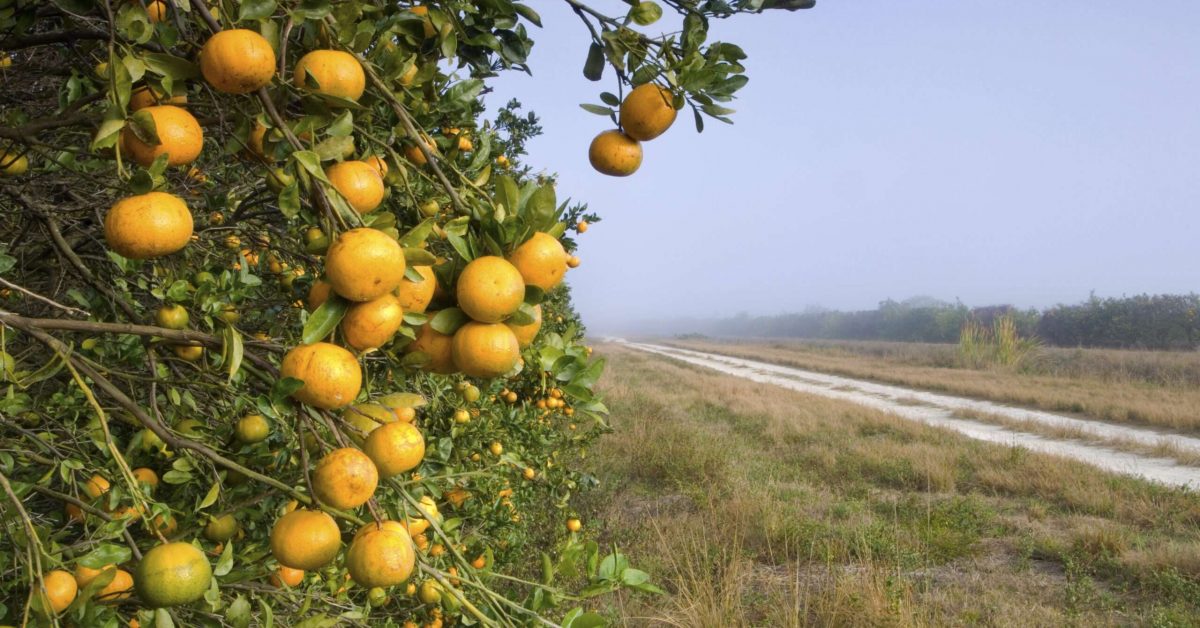Gulf Citrus Growers Association disbanded May 10 after almost 40 years of existence, including the past seven years that were filled with devastating blows to the citrus industry across Southwest Florida.
“During our peak, we would have been over 100,000 acres,” association President Wayne Simmons said of the 2005-10 peak of land being used to farm citrus in Southwest Florida. “We’re down to less than 25,000 acres.”
The association’s closure means farmers across the region no longer have a group that can provide them support with local governments in lobbying for citrus-friendly public policies.
Growers had to pay $2 per acre per year in dues to the association. Even that became too much of a burden, Simmons said.
“We’re down to 20 members,” Simmons said of what had peaked at between 50 and 60 members. He still farms on about 25 acres in Hendry County. “We tried to do some fundraisers. But the thing is, nobody has enough money. Chemical companies, fertilizers, harvesters, trucking. They’re all taking a hit. Most of your fresh fruit is coming from California, and most of your orange juice is coming from Brazil and Mexico.”
Hurricane Irma struck Sept. 10, 2017, and moved north inland, devastating many citrus farms up the middle of the region and state.
Those citrus farms already were struggling because of greening, a disease with no known cure. It has been spreading among the citrus crops across the state, killing off crops.
“After Irma was the start of the crash,” Simmons said. “It really accelerated. After Irma, it really just started collapsing. And then after Hurricane Ian (Sept. 28, 2022), it’s just been downhill. Looking back on it.”
 Greening has yet to impact California crops, Simmons said.
Greening has yet to impact California crops, Simmons said.
“Everything in Florida’s got greening,” he said. “It’s infected the whole state and through the southeast. California’s just not getting it. But their climate is a little bit different.
“The tropical climate, it spreads it. California has an arid climate. You’ve got a lot of cold nights. And those cold nights keep it from spreading quite as much. But the tropical climate just makes it go crazy.”
Ron Hamel helped found the association in 1985 and began working for it in May 1988. He retired as president of the association in March 2018.
“The industry was looking at locating further south to get somewhat south of the (unofficial) freeze line, which was State Road 60,” Hamel said.
State Road 60 runs east-west, from Clearwater on the west coast, through Brandon, Mulberry, Bartow, Lake Wales to Vero Beach on the east coast.
“That was the line of demarcation,” Hamel said. “In the heyday of the association, we accomplished what we wanted to do. With the high-quality citrus that was growing in our region, we were marketing Gulf citrus worldwide. We achieved the goals that were set forth when we founded the association.”
The association always faced challenges, he said.
“They discovered greening in 2005,” Hamel said. “It’s really heartbreaking to see that. The citrus industry was such a strong, vibrant and economically viable industry. These two diseases (greening and canker) have pretty much devastated the industry. Thousands of jobs have been lost. Millions upon millions of dollars have been lost.”
Alico Citrus, part of Alico Holdings Inc., still farms on about 54,500 acres across seven counties, CEO John Kiernan said.
“We’re committed to citrus,” Kiernan said. “We’ve been replanting aggressively over the last seven years. We continue to acquire small parcels of land. We’re invested for the long term.”
The closing of the association did not directly impact Alico, he said, because it is continuing to work closely with Florida Citrus Mutual, the statewide lobbying association.
“We’re disappointed, because it’s a reflection to the contraction of the industry,” Kiernan said of the Gulf Citrus Growers Association shutting down.
The area’s farmers will now be on their own in communicating with their local governments.
“There are still several large growers that will hopefully come back to reestablish the industry,” Hamel said. “It won’t ever be what it was. But we can’t say the industry is totally out. There’s optimism by people who are staying in. Hopefully they can resurrect it.”





